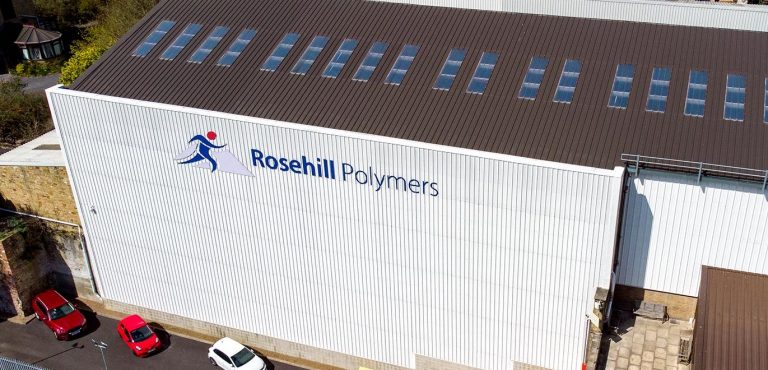New partnership aims to build more affordable homes in North Yorkshire
Local businesswoman takes over Scunthorpe United
SMS Towage adds Turkish-built vessel to Humber fleet
A 22-metre tugboat bought by Hessle-based SMS Towage Limited from Sanmar Shipyards in Turkey has arrived in Hull from Istanbul.
The brand new, environmentally-friendly TRADESMAN is the latest tug to join the SMS fleet, and will manoeuvre boats and super tankers safely into the ports of Hull and Immingham. Weighing over 190 tonnes, the TRADESMAN has been bought with the help of Andrew Jackson Solicitors. She is equipped with two Caterpillar 1,500 kw engines capable of pulling super tankers carrying gas or oil, which can weigh as much as 200,000 tonnes. The tugs are also fitted with firefighting pumps. Paul Escreet, chairman of SMS Towage, said: “The Humber estuary is one of the busiest trading areas in Europe, but its powerful tide means there needs to be a substantial fleet of tugs readily available to ensure that vessels are capable of manoeuvring and berthing safely. “This latest investment in our fleet means reflects our aim of providing our customers with more modern and environmentally friendly tugs at the Humber port, whilst complementing the existing fleet to meet our specific operational needs. “Once again, we are very grateful to Rebecca Forder and Dominic Ward in Andrew Jackson’s shipping team, who remain our trusted advisors for this type of work. We continue to be very happy with their valuable help and advice.” Dominic Ward, senior partner, and head of Andrew Jackson’s shipping & transport team added:- “SMS Towage is the UK’s largest independent marine towage provider and their passion for the industry is evident. As a long-standing client of the firm, we are particularly delighted to have assisted them with this latest transaction and to ensure the vessel’s smooth transition into the UK, as the business continues to flourish. ”Sheffield’s SMEs invited to share in funding worth £1.75m
Emma takes over as Community Ventures MD this month
Sewell Group’ estates consultancy company Community Ventures Management has appointed Emma Bolton assist Chief Executive.
Emma is a Fellow of the Royal Institution of Chartered Surveyors and a qualified town planner, and has spent much of her career in the public sector, working in strategic estates roles. She joined Community Ventures four years ago as Area Director for the North East and Leeds, before stepping up to the Chief Executive role this month.
She is well known throughout the healthcare estate industry after having held a variety of estates roles for local authorities and the NHS, including at NHS Property Services and NHS England, and as Director of Estate and Fleet at Yorkshire Ambulance Service.
Emma takes over from long-term Community Ventures leader Nigel Fenny, who will be stepping back to semi-retirement. He will be staying on with the team in a part-time, freelance capacity, so the company will retain his expertise and knowledge in the business.
Emma is looking forward to stepping up to the challenge of leading the Community Ventures team.
“I am really excited about the future for Community Ventures, and it’s a huge privilege to move into the role of Chief Executive. I’ve got a brilliant, talented team behind me who are passionate about making health estates and facilities fit for the demands of modern healthcare.
“We’re a rapidly growing consultancy, and we’re working tirelessly to help our expanding number of clients and partners find innovative, bespoke solutions to their estates challenges.”
Community Ventures is an estates consultancy, highly experienced across the NHS and commercial services, who support partners across England with estates strategies. Since they were formed in 2008, they’ve worked on some of the highest profile health estates projects in the North of England, including managing a £57.5m primary care transformation project in South Yorkshire, creating the business case for a £20m health and wellbeing centre in Keighley and being a key part of the construction of the £700m Royal Liverpool Hospital.
Financial services activity holds firm
- Optimism softened in September (weighted balance of +20% from +30% in June; long-run average of +3%).
- Business volumes growth was quick in the quarter to September, despite slowing from last quarter (+27% from +42% in June; long-run average of +13%). FS firms expect volumes to increase at a faster pace next quarter (+41%).
- Average spreads increased slightly in the three months to September (+5% from 0% in June). Spreads are expected to be broadly flat next quarter (-3%).
- The value of non-performing loans grew modestly in the quarter to September (+8% from 0% in June) but is anticipated to decline marginally next quarter (-5%).
- Profitability growth decelerated in the quarter to September (+13% from +41% in June) but is expected to speed up again next quarter (+38%).
- Employment expanded at a robust pace in the quarter to September (+34%), albeit at a slower pace than last quarter’s increase (+52%, fastest since December 2006). Firms expect headcount growth to ease further next quarter (+23%).
- Firms expect to increase investment in IT over the next 12 months (compared to the last 12). Capital expenditures on land & buildings and vehicles, plant & machinery are anticipated to be broadly unchanged.
- Uncertainty about demand was the most commonly cited factor likely to limit investment in the next 12 months (47%). The share of firms citing cost of finance (28%) as a potential limiting factor rose to its highest since December 2014.
Logistics confidence falls to second lowest level on record
Pubic asked to vote on central Hull property development
CMA fears Whitby Seafoods’ competitor acquisition will lead to higher prices and lower quality
“Kilhorne Bay is a relatively small player, but Whitby Seafoods already faces only very limited competition when competing for foodservice customers – so the deal would leave customers facing the risk of higher prices and lower quality products.”












